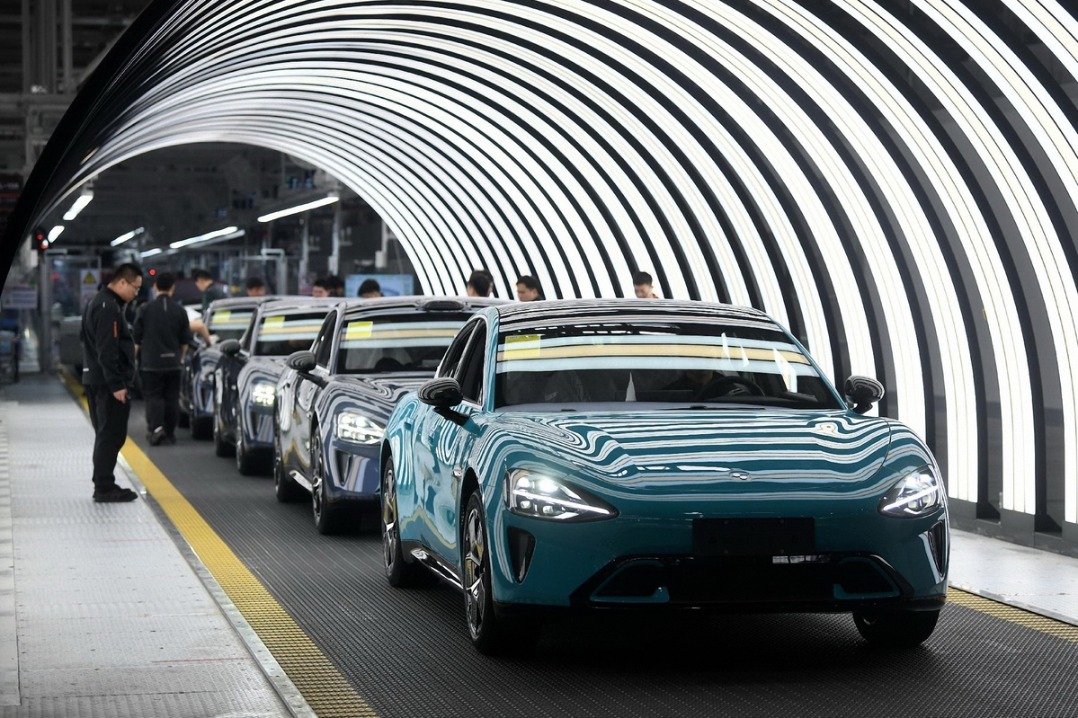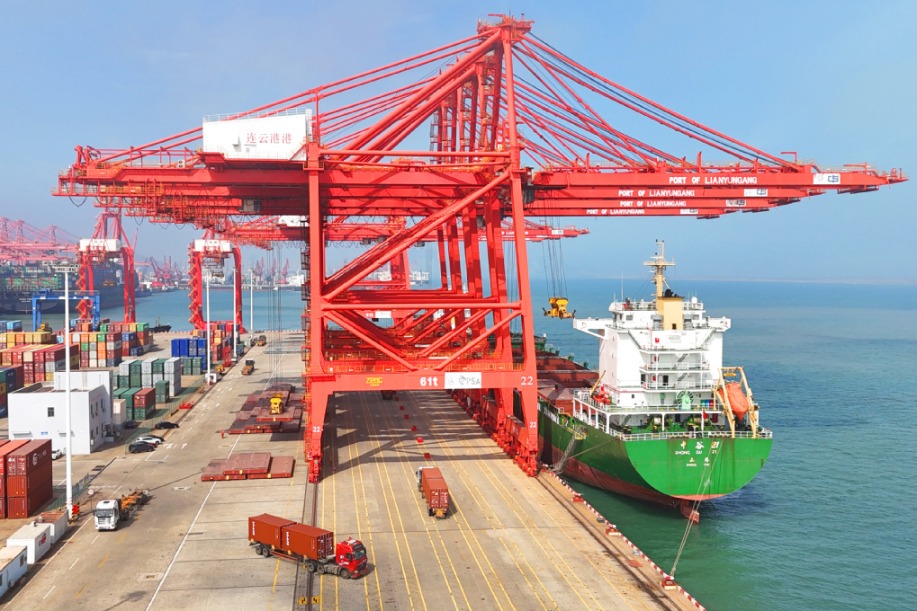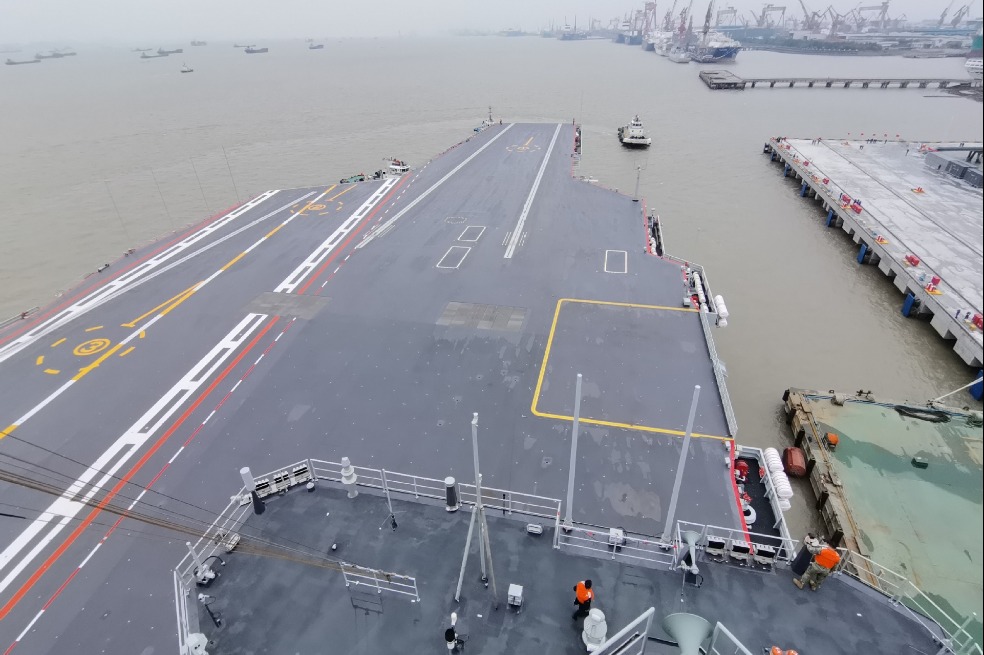Short-term pain, long-term gains
By HUMPHREY P.B. MOSHI | China Daily Global | Updated: 2020-03-17 08:21

The novel coronavirus epidemic has shown that globalization is still a work in progress and that countries need to enhance their coordination and cooperation
The novel coronavirus epidemic has spread across the world. This is a clear testimony to the fact that we live in a highly interconnected world, which manifests itself in a number of ways. This globalization phenomenon, which in the recent past has deepened and broadened with unprecedented speed, has been propelled by a number of factors including improved transportation and telecommunication, easier flows of people and capital, and greater diffusion of knowledge.
After 40 years of reform and opening-up, China has become a key player in the process of globalization. In this regard, not only has the world changed China, but China has changed the world as well, becoming in the process of globalization the second-largest economy in the world. The phrase "Made in China" has become a household name globally and no more so than in Africa: which is a clear indication of China's influence in the world economy. Hence, it is because of this growing influence that people are interested and concerned about the impact of this epidemic on the socioeconomic status of countries. There are some likely effects on world economies, especially African economies.
The Chinese leadership and the Chinese people should be commended and congratulated for the efforts they have undertaken so far to fight against the virus. Indeed, we have seen over 42,000 healthcare workers in more than 330 medical teams from throughout the nation converge in Hubei province, which has been the area most affected by the outbreak. Further, we have witnessed thousands of engineers and construction workers build two makeshift hospitals, equipped with 2,600 beds, especially for those suspected of being infected with the virus.
Moreover, according to the government sources, these measures are paying off since the number of daily confirmed cases, outside of Hubei, has fallen from a peak of 890 on Feb 3, to only 3 on Feb 29, and the situation in Hubei province and the city of Wuhan has been brought under control. This shows clearly that the epidemic is controllable.
The commitment and determination displayed by the Chinese government notwithstanding, there are negative economic and social effects that will be experienced by countries which are dependent on China. Cooperation between Africa and China, for instance, is driven by trade, investment, finance and people-to-people exchanges. With regard to which of those the outbreak will have the most obvious impact on, the answer is very clear: trade and people-to-people exchanges. This means there will be a decrease in both imports and exports. This will in turn translate into reduced personal incomes and government revenues, and increased inflation rates, triggered by the scarcity of imported commodities. There are media reports saying that in Tanzania some imports from China are becoming scarce due to the epidemic control measures in China, which has led to a substantial increase in prices. And apart from these, the efficiency of ports may be impaired because of virus screening process which translates into longer ship-waiting time at ports.
The virus will also negatively affect people-to-people exchanges, especially business trips and tourist visits. Because of travel restrictions, Africa has been receiving fewer tourists from China during the past few weeks. Some airlines, such as Kenya Airways, have suspended flights to and from China. Such measures have negative effects not only on the tourist sector but also on the airlines themselves. For example, Kenya Airways has already recorded a loss of over $8 million.
The impact of the virus on investment and on finance will be minimal for two key reasons. First, investments and financing have been and are being undertaken outside Chinese borders, and these are free from the virus' impact, such as in Ethiopia, South Africa, Nigeria, Egypt and Tanzania. Second, they involve less movement of people, in the sense that more local workers than foreigners are involved in running the investments. But where foreigners are involved, they are already resident in the requisite countries. In the case of finance, the deal can be either negotiated online or where a face-to-face encounter is necessary, such an encounter is normally a one-off event.
In spite of the bad side of the virus on countries' economies, there is good news: these negative effects will be short term and they will not have long-term social and economic effects for three basic reasons. First, China has the capacity to control the further spread of the virus. Second, the economic fundamentals in China have not deteriorated. In other words, the fundamentals sustaining sound economic growth have not changed and will not change in the short run. Indeed, the country remains and will continue to remain a "heaven on earth" for investors worldwide. That being the case, China's economic recovery should be rather quick. Third, China's policy of relocating some industries outside its borders is paying off, since it mitigates the negative effects of the epidemic.
Then what are the lessons to be learned from the novel coronavirus outbreak? First, it is the reminder that the interconnected global economy has both merits and demerits. Second, countries' preparedness for highly infectious diseases, worldwide, is inadequate. Third, with a view to enhancing preparedness, online trade should be scaled up. Fourth, China's policy of relocation of industries needs to be complemented by a deconcentration of industries and services. Last but not least, the most effective weapon to win this "smokeless war" against a common threat is through the solidarity of nations and peoples. That being the case pointing fingers of blame, discrimination and xenophobia should not be given breathing space.
The author is professor in economics and the director of the Centre for Chinese Studies at the University of Dar es Salaam. The author contributed this article to China Watch, a think tank powered by China Daily. The views do not necessarily reflect those of China Daily.
























